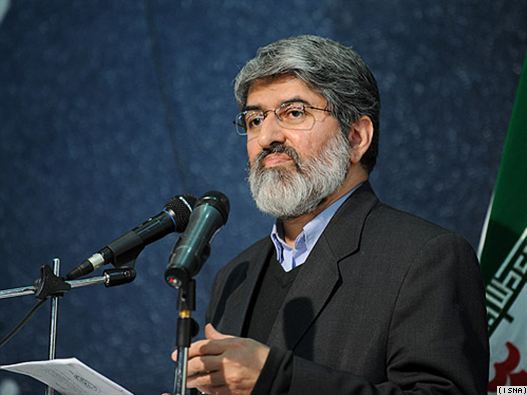Independence and freedom, which were two important mottoes in the Islamic Revolution and were later on included in the Constitution of the Islamic Republic, set the foundations for the citizenship rights and justice in Iran, said the Tehran constituency Parliament Member Ali Motahhari in an address for Isfahan Industrial University students, titled The Nationˈs Rights.He said that the motto of the French Revolution was freedom, the motto of the Russian Revolution was justice, and the justice and freedom demanded in our revolution were based on the Islamic foundations, which definitely differ with the freedom and justice in the West.
Referring to some of the articles of the Iranian Constitution on the citizensˈ civil rights, he said that any type of inquisition, eavesdropping, revealing the peopleˈs private communications, illegal banishing, torture to gain confessions, and the like are forbidden in Iran, according to the IRI Constitution.
The MP elsewhere in his address focused on some of the differences in Islamˈs cognition of the human being versus the western conception of the humankind, arguing, ˈAlthough the international Charter of the Human Rights is acceptable for us, but there are fundamental differences in details between these two mentalities.
He said that it is wrong to assume that the entire mentalities and beliefs are based on thoughts, because there are some mentalities which are inherited from the fathers and ancestors, or pursued due to following the path of a majority, not because of sound reasoning and thoughtful deductions.
ˈTherefore, freedom for all mentalities is not permitted, because in the way of life of the prophets (p) there are their campaigns against the false beliefs, such as idol worshipping,ˈ he said.
The Tehran constituency MP added, ˈThe divine prophets never said that the beliefs of the whole human beings are respectable, but in the Declaration of the Human Rights the beliefs of the entire human beings, even the false ones among them, are regarded as respectable.ˈ
Motahhari said that the human nature from the Islamic and the western viewpoints differ, adding, ˈIn the western mentality any creature with two legs that walks straight is a human being, with a fixed and respectable entity.ˈ
He added, ˈIn Islam, though, the entity of the human being differs, because the human beings are considered with their free wills and rights to choose.ˈ
Motahhari said that such Islamic verdicts as punishments and execution are based on related philosophical foundations, adding, ˈFor instance, a criminal human being for whom killing the others is a common practice can annihilate the others easily and the continuation of his life poses a threat for the society. He therefore must be executed.ˈ
The Iranian lawmaker referred to the roots of the western liberties, saying, ˈThe basis for the western types of freedoms should be sought in the Middle Ages and the extremism observed by the heads of the (Catholic) Church; therefore, the human beings who were trying to escape from that kind of extremism were fallen preys to another type of radicalism.ˈ
Motahhari said that kindling the flames of war between the religion and rationalism, between having faith and loving the sciences, faith and love of wealth, faith and love of positions, or faith and sexual desires were among the other mistakes of the church during the Middle Ages.
ˈThe church in those days considered marriage as a non-sanctified practice and remaining unmarried as a holy status, while in Islam the opposite has always been true,ˈ he said.
He referred to his late father Martyr Morteza Motahhariˈs viewpoints on freedom and his farsightedness and deep insight in that respect, arguing, ˈMartyr Motahhari believed in an Islamic country even the non-Islamic parties can have activities, on condition that they should not act pretentiously, so that the people could freely choose their paths.ˈ
